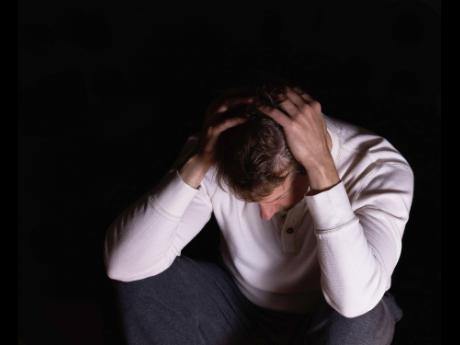Being macho with Post Traumatic Stress Disorder
Men are taught to mask their emotions, which some who get overwhelmed by trials tuck neatly away in a Pandora's box hoping the agony they hide will never seep through any of its four corners. Some of us will agree that this customary domineering macho practice sometimes does not always coincide with the best interest of our men. What happens when the box eventually erupts?
One of the likely results is post-traumatic stress disorder (PTSD). It's a mental-health condition that Justine East-Campbell, an associate psychologist, reckons is a serious disorder that is often overlooked, but is potently laden with rigours to destroy relationships and other aspects of life.
East-Campbell, who is attached to Caribbean Tots to Teens, explained that one-time or recurring events in a man's life, which are extremely stressful, depressing, or scary, are trigger factors that lead to PTSD.
"It could be anything from a violent assault like a robbery, sexual assault, or long-term abuse, whether physical or sexual, a major traffic accident, military combat, or a natural disaster. Also, it can be something witnessed or even learned about as happening to a family member or close friend," East-Campbell said.
SYMPTOMS
East-Campbell explains that men will experience a number of symptoms while they suffer from the disorder. Some symptoms may not be manifested until even six months after they have experienced the event.
"Some things you need to look out for are him speaking about having unwanted and distressing memories about the event. He tries to avoid these memories or people, places, objects, or anything that results in these distressing memories. He may have lasting and magnified negative beliefs or expectations of himself, others, or the world. For example, he's bad, the world is entirely dangerous, and he can't trust anyone. And if he has exaggerated startling responses and sleep problems," she said.
TREATMENT
The expert chides the male's emotional hush-up mentality that leads to their reluctance to speak out about their sufferings. This situation, at times, exacerbates the miseries of men who suffer from PTSD.
"It's important for loved ones and friends to observe changes in men and try to get them help [because they will not talk], especially if they are experiencing some of what may be considered as more feminine symptoms like crying, feeling fearful, and depressed," she implored.
OTHER ILLNESSES
The indicators of PTSD are common in other disorders, which makes it difficult for patients to be properly diagnosed. As a result, PTSD can lead to and occur simultaneously with other disorders.
"Some may experience eating disorders, and symptoms of personality disorders like borderline personality disorder that involves distrust of others, irregular moods, impulsive behaviour, low self-esteem, unstable relationships, and depressive, anxiety and substance use disorders are common," East-Campbell told Flair.
And that's not all.
"One is also more likely to develop physical health problems, such as pain, diabetes, obesity, heart and respiratory problems, and sexual dysfunction. These are as a result of the high stress that the body is experiencing," she said.

